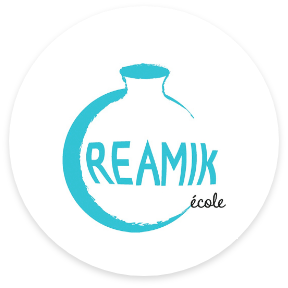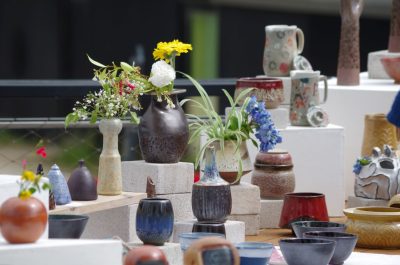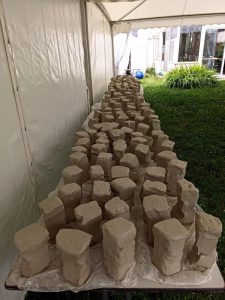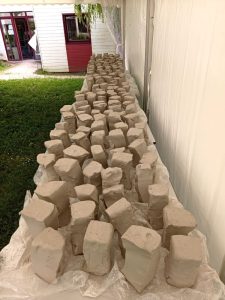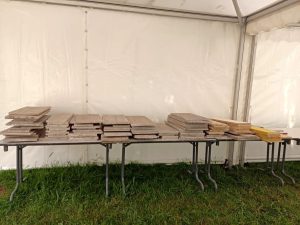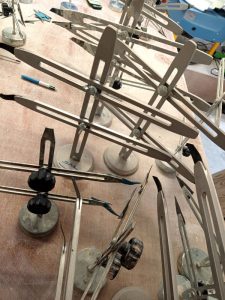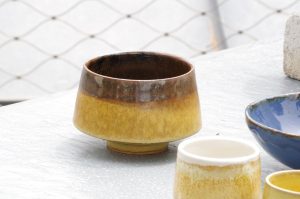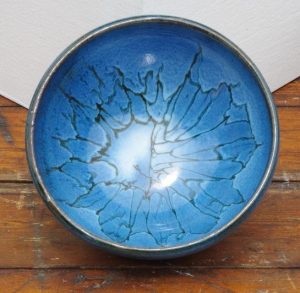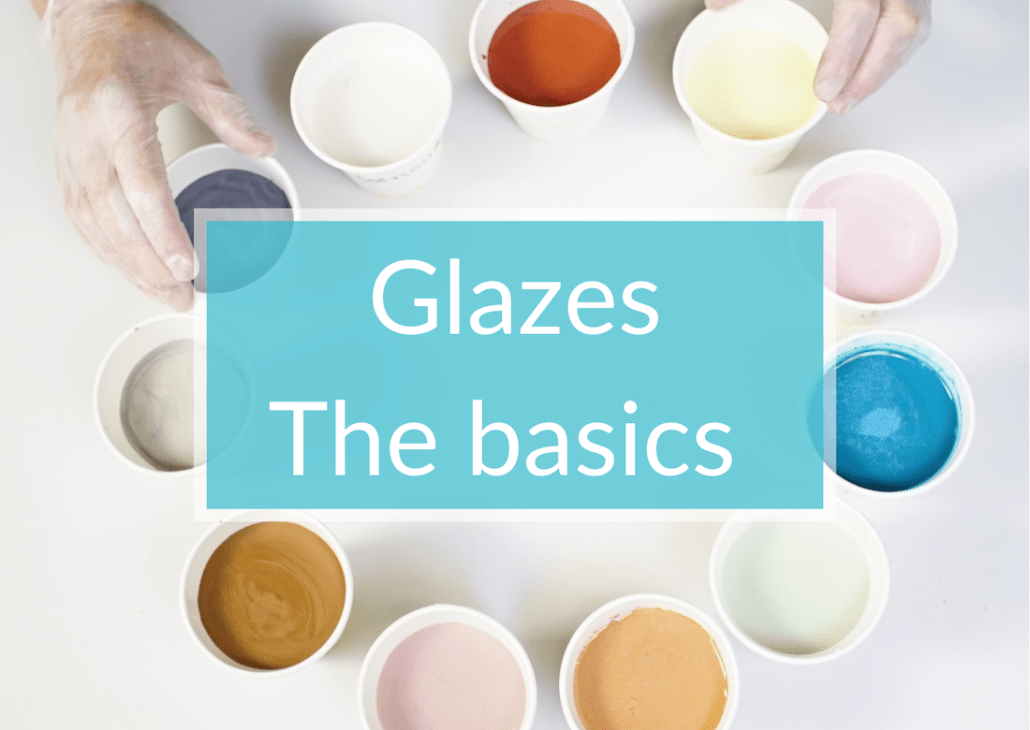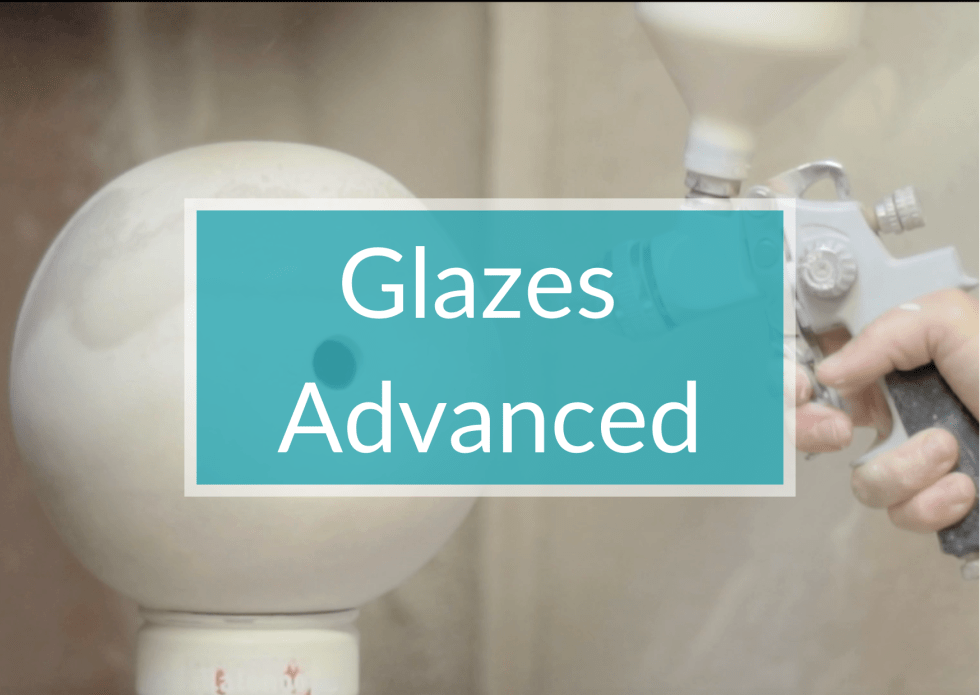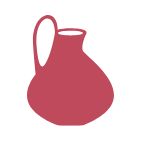End-of-year exhibition and review of Créamik’s CAP Tournage certification
Sommaire
For several years now, Créamik has closed the school year with an exhibition highlighting the work carried out by its students over the 10 months of their training. This year’s graduating class is no exception and, on 23 June, Port Anna once again provided the perfect backdrop for the exhibition, making it one of Séné’s must-see events.
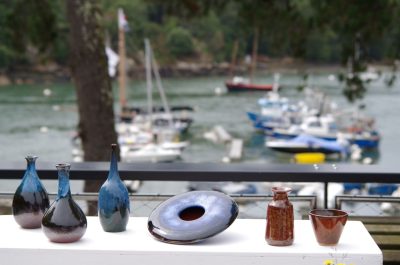
In an article following the 2023 exhibition, we explained how to organise a successful stall for your work, and gave tips on the best ways to showcase it.
This year, we’ve tried to put all these tips into practice, presenting the pieces we’ve made in a way that engages more effectively with the public!
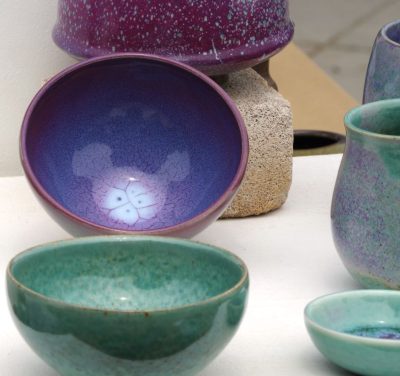
Port Anna, Séné, Créamik students’ end-of-year exhibition
From the very beginning of the Créamik school, Matthieu’s intention was to provide the most comprehensive training possible so that, by the end of the year, students are ready to begin professional careers.
An important part of the training is the preparation for the ‘CAP’ (short for ‘Certificat d’Aptitude Professionnelle’ or ‘professional competence certificate’) in ceramics. Créamik is the only organisation in Brittany able to offer this exam.
The CAP exam in ceramics: a demanding, comprehensive test
Contrary to what you might think, this exam goes beyond practical throwing skills. It includes tests on the history of ceramics, technology and technical drawing, as well as practical assessments of creativity and repetition throwing. In Brittany, the exams are held at the Créamik school, bringing us into close contact with many who aspire to become professional potters.
Knowing how the tests are organised and structured gives us insight into what students need to know to succeed. A thorough understanding of the physical conditions in which the exam takes place helps us prepare students to perform well.
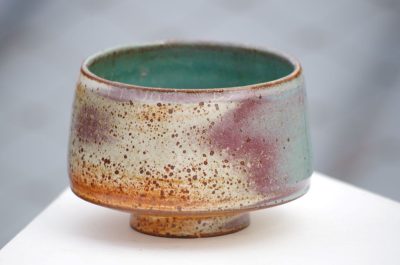
The CAP Tournage 2024 examination procedure
The CAP Tournage in ceramics certifies the technical skills of candidates in the field of ceramics. The exam is made up of a series of tests assessing a range of skills from design to manufacture, including knowledge of materials, etc.
Here is a review of the CAP Tournage exams as they were held in 2024:
1 – Thursday 30 May: first test named EP1 A, lasting 4 hours. (The EP1 A test has a coefficient of 4. ‘Coefficients’ are used in France to weigh the importance of subjects in a study programme.)
- History of ceramics: Candidates are presented with 10 photos of ceramic works, a list of 10 historical periods and a list of 10 techniques. They must link each photo to its corresponding period and techniques.
- Technology: Technical questions about clay, tools, working techniques, plaster, firing, terms used, glazing, decoration, etc.
- Technical drawing: A real life situation: the candidate’s task is to produce a technical drawing serving as a means of communication between the client and the ceramicist.
2 – Monday 3rd June: PSE (Prévention Santé Environnement – an environmental health test), 1 hour. (The PSE test has a coefficient of 1.)
- Common sense test: Candidates are given several descriptions of a situation in a professional environment, and asked to identify the problem and try to solve it.
- Example; 2019 exam, a situation is described where an employee works at night, snacking on crisps and cakes. He decides to change his diet and buys a treadmill for €299 in order to lose weight. The questions focus on how he should manage his budget to buy a treadmill.
3 –Tuesday 4th June: test named EP1 B Part I, 4 hours. (The complete EP1 B test has a coefficient of 8.)
- Creative throwing test. Provided with precise instructions and working to precise dimensions, the candidate has to come up with a prototype. The test will include information, mainly illustrations, showing what needs to be achieved.
4 – Wednesday 5th June: test named EP1 B, Part II, 4 hours.
- The students return to decorate the pieces they began on the previous day, which have been drying for 24 hours. At the end of the test’s 4 hours, the pieces are submitted and can’t be altered anymore.
5 – Thursday 6th June: test named EP2 Part I, 4 hours.
- Production throwing (also known as repetition throwing). The task is to throw several pieces with specific dimensions from a drawing (but not necessarily to scale).
There will be several small pieces and two larger ones.
6 –Friday 7 June: test named EP2Part II, 4 hours. (The complete EP2 test has a coefficient of 8.)
- The students return 24 hours later to turn and decorate the pieces according to instructions. Some pieces are left unadorned but are cut in half so that the examiners can assess the technical quality of the throwing. At the end of these 4 hours, the parts are handed in and the students no longer have access to them.
Examination summary table :
| Date | Test | Duration | Coefficient | Description | |
| 1 | Thursday 30 May | EP1A | 4 h | 4 | History of ceramics, technology, technical drawing |
| 2 | Monday 3rd June | PSE | 1 h | 1 | Health and safety, analysis of professional situations |
| 3 | Tuesday 4th June | EP1B 1st part | 4 h | Creative throwing, prototypes | |
| 4 | Wednesday 5th June | EP1B 2nd part | 4 h | 8 | Decorating pieces started the day before |
| 5 | Thursday 6th June | EP2 1st part | 4 h | Production throwing from a drawing | |
| 6 | Friday 7 June | EP2 2nd part | 4 h | 8 | Turning and decorating of pieces, cross sections of some taken for evaluation |
The CAP is a demanding examination, with 21 hours of tests spread over 6 working days. There are a wide range of tests, requiring months of preparatory work. Tasks set are precise, and expectations must be met.
What are the Créamik’s results?
Once again this year we have seen all our students pass their CAP. This success provides students with the confidence to embark on a professional career, especially as most of them pursued this training as part of a professional transition.
The number of independent candidates is increasing every year in Brittany, a trend mirrored throughout France. This reflects the current enthusiasm for ceramics, and the growth in schools providing training in ceramic skills.
As Créamik is currently the only organisation in Brittany with the necessary material and human resources to run this examination, we make our premises and resources available to the French Ministry of Education for that purpose.
However, each year we find that many people who registered do not turn up for the exam: this year, out of 23 people who had registered (excluding Créamik students), 15 did not turn up, without giving prior notification.Colleagues who are involved in organising the CAP in other regions of France make the same observation: many who register do not take the test.
For a small training centre like ours, running the CAP takes considerable logistical effort and substantial investment in equipment and raw materials.
All the clay is dried, then prepared, so that it is at the perfect consistency for the exam: 10 kg per student, i.e. 400 kg.
160 boards… lots of small equipment … in this case a thicket of gauges.
We spend much time setting up the studio to accommodate twice as many candidates as usual, preparing enough clay, cutting boards, erecting tents to store the pieces, and making other preparations.
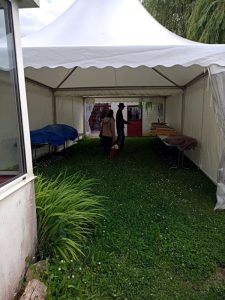
Two tents are rented for two weeks to store the candidates’ work during the CAP and its subsequent assessment.
We are happy to provide all the equipment and adapt our premises if it helps to run a smooth exam, but seeing such a high level of absenteeism leads us to draw a number of conclusions:
- Many candidates underestimated the preparation required for the CAP and probably didn’t feel ready when the time came.
- Those who withdrew without informing us obviously did not appreciate the amount of preparation required.
Voici donc un message que nous souhaitons faire passer aux futurs candidats : la préparation du CAP Here’s a message we’d like to pass on to future candidates: preparing for the CAP Tournage Céramique requires a significant time investment on your part, regardless of how you train. Working with ceramics is a challenging skill that can only be acquired through intensive practice, either full-time over several months or part-time over several years, and with appropriate teaching support.
Before registering for the exam, ask yourself whether you have the means and real desire to invest in your training.
Finally, in order to help future candidates to gauge the scale of the task, perhaps the French Ministry of Education could set enrolment conditions in line with the level of work required to pass the CAP.
If you find that you have to abandon your project at any point during the year, please let us know as soon as you have made up your mind. Thank you very much.
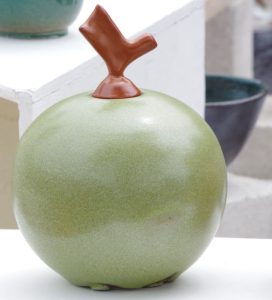
Conclusion
The year ended on a positive note for Créamik: 100% success at the CAP Tournage Céramique. This achievement testifies to the students’ continued commitment throughout their training.
The end of year exhibition in Port Anna was well received, highlighting the talent of the new ceramicists, whose work demonstrated the diversity and quality of their skills.
In conclusion, the key to success is perseverance and passion. To all future candidates, we remind you that commitment and rigorous preparation are essential to achieving professional and artistic excellence.
Happy holidays to all! School starts again in September but we’ll still be posting on the blog, so make the most of the summer!
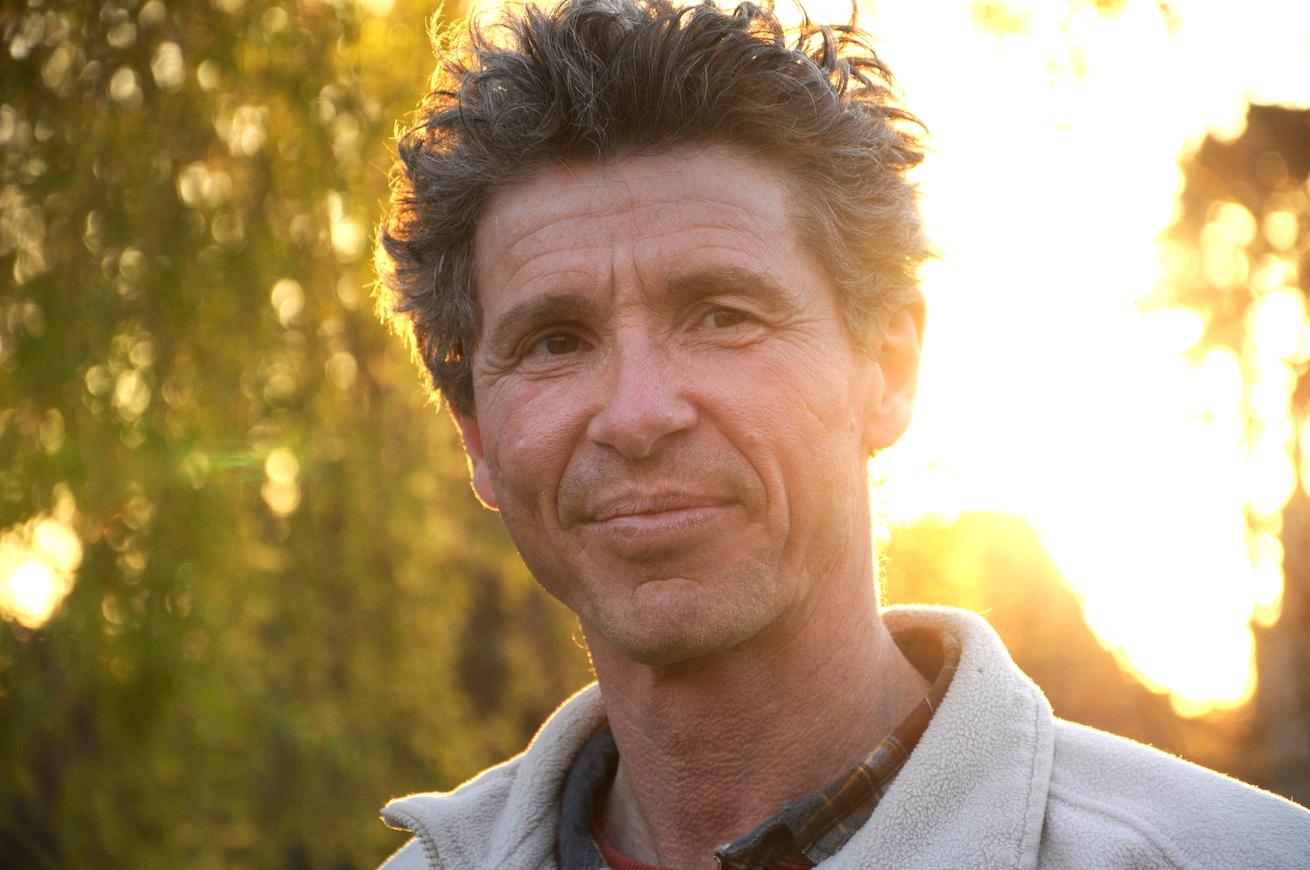
Resource centre
animated by Matthieu Liévois,
potter-ceramist for over 40 years and founder of the Creamik School
Find all the courses
Keywords
Don’t miss any more news from the Créamik school!
